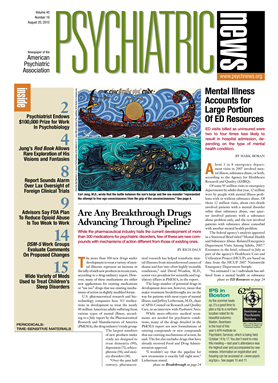A proposed voluntary education program for physicians and other prescribers aimed at preventing abuse of opioid painkillers was rejected in July by a combined Food and Drug Administration (FDA) advisory committee.
At a July 23 joint meeting of the Anesthetic and Life Support Drugs Advisory Committee and the Drug Safety and Risk Management Advisory Committee, members voted 25-10 to reject the agency's proposed plan to prevent inappropriate prescribing, misuse, and abuse of extended-release opioids over concerns that the proposal was insufficiently aggressive to stem the growing national problem of opioid abuse and addiction.
The agency's plan, the goals of which Congress authorized it to pursue, would have established a risk evaluation and mitigation strategy (REMS) using physician-education plans developed by the companies that manufacture extended-release opioid medications. These physician-education tools would offer guidance regarding patient selection and medication dosing and monitoring. The education program also would train prescribers to counsel their patients on how to safely store and dispose of opioids.
Members of the joint advisory committee said that they rejected the plan because a more robust approach was needed, including mandatory physician training on which patients need opioids and how to identify patients who doctor shop in order to obtain the drugs.
The panelists said that more aggressive actions by additional federal agencies are needed beyond what the FDA can undertake through its limited authority to assure that medications are safe and effective.
Many of the panelists also were uneasy about the potential for conflicts of interest, because the FDA plan called for company-sponsored training and company-produced education materials.
Instead, members of the joint committee urged new congressional legislation that would direct other government agencies—including the Drug Enforcement Administration (DEA)—to coordinate actions that could address the rapidly growing problem of people illegally obtaining and abusing opioids.
Such DEA action is “another important part of this problem, and that's certainly going to have to happen in order for this to work,” said Douglas Throckmorton, M.D., deputy director of the FDA's Center for Drug Evaluation and Research, in a press briefing after the vote.
The widespread nonmedical use of opioids has been highlighted in recent years by federal health officials, including in a finding by the Centers for Disease Control and Prevention that in 2006, opioid painkillers were involved in more overdose deaths than heroin and cocaine combined.
In addition, a survey by the Substance Abuse and Mental Health Services Administration concluded that nearly 5 million Americans abused opioids in 2004, or about 80 percent of the 6.3 million Americans that agency determined were abusing any type of prescription drug.
In light of these findings, the committee members concluded that the FDA should establish a mandatory risk-management program for opioid prescribers. About 700,000 physicians currently prescribe opioids for about 4 million patients, according to FDA documents released prior to the hearing.
The FDA staff balked at establishing such a mandatory program, however, because the scale of such a program would far surpass any such effort the agency has implemented previously and would have unprecedented costs and organizational challenges. FDA staff also were concerned that physicians might simply cease prescribing opioid medications and thus avoid having to participate in the program, which would reduce the number of clinicians nationwide available to prescribe pain-control medications.
“We have made REMS mandatory in other areas of medicine, but they were much smaller areas,” said John Jenkins, M.D., director of the agency's Office of New Drugs, in the post-meeting press briefing.
As an alternative, panel members urged improved physician training as part of either the DEA clinician-registration process or part of physicians' ongoing medical licensure qualifications. Physicians and nurse practitioners who prescribe certain opioids already have to register with the DEA.
Jenkins told reporters that the FDA is considering whether to work with its parent agency, the Department of Health and Human Services, to craft legislative language to expand efforts to fight opioid abuse. Alternatively, Jenkins acknowledged that the agency may return with a proposal to require mandatory REMS training of clinicians by drug makers, despite the committee members' concerns about industry conflicts.

